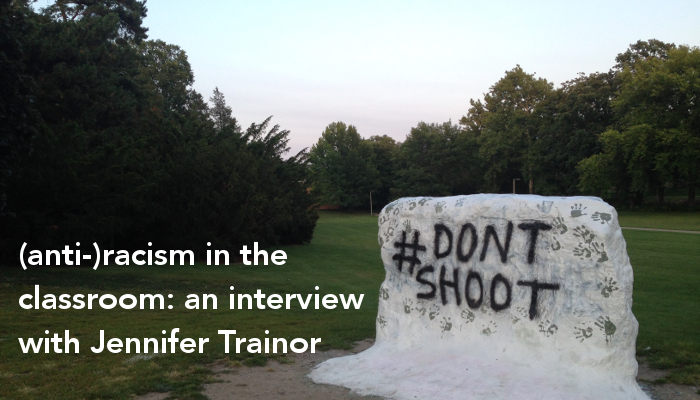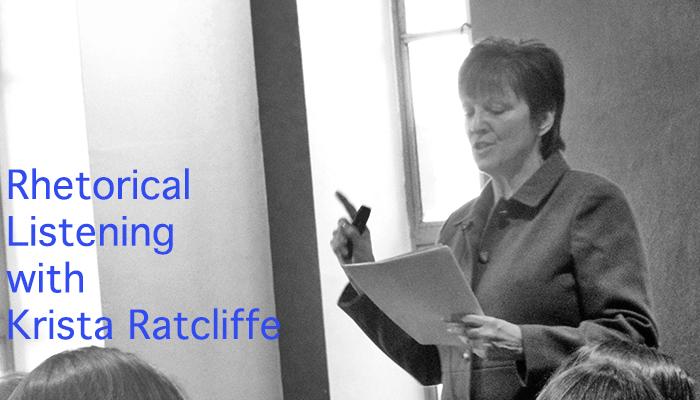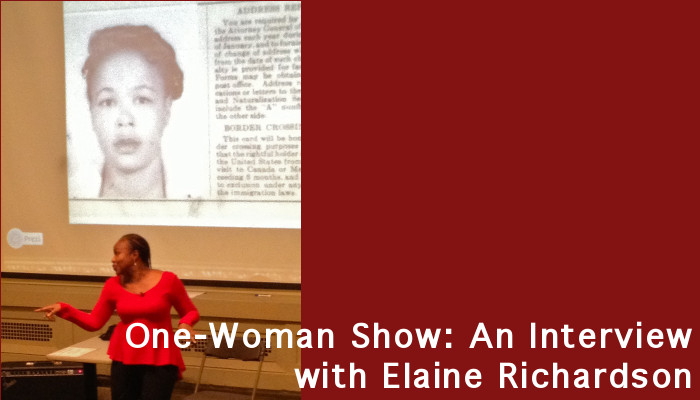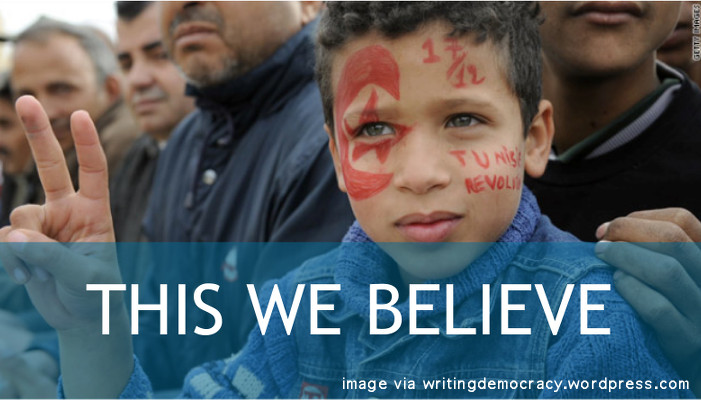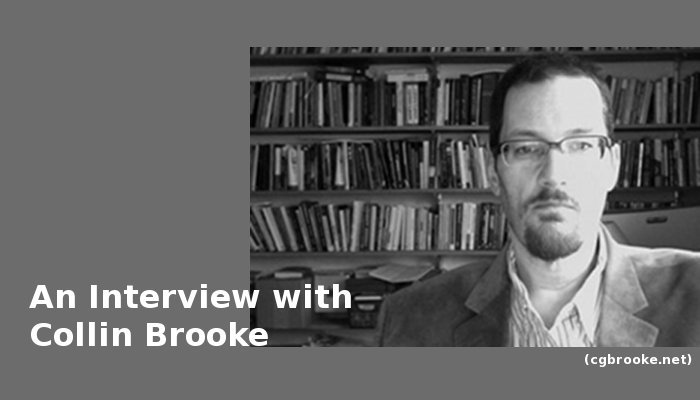I started the research really struggling to understand how seemingly good people could say such awful things, and that’s really what I wanted to understand. I think what I found is that people are not all one thing or another. They aren’t as awful as they seem in a particular moment. Our students are struggling I think to make sense of the world. –Jennifer Trainor
As educators, we ought to discuss issues of racism and structural inequality in our classes. How do we do this with students who are in the process of forming their identities, beliefs, and values? Episode 27 features an interview with Jennifer Seibel Trainor, author of Rethinking Racism: Emotion, Persuasion, and Literacy Education in an All-White High School. In this episode, Trainor addresses anti-racist pedagogies and how we can talk about racism productively with students in the classroom, particularly when students may feel defensive about these issues. Trainor argues that we need to read deeper into the racist comments students make in the classroom to try to understand why they’re saying what they’re saying. You can read a review of Trainor’s book in Composition Forum here: http://compositionforum.com/issue/19/rethinking-racism-review.php
To access a PDF of the full transcript of this episode, please click here: Episode 27 Transcript.
The songs sampled in this episode are “Biomythos” by Revolution Void and “From Stardust to Sentience” by High Places.
Podcast: Play in new window | Download
